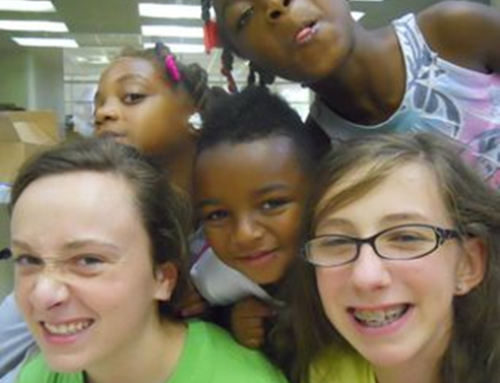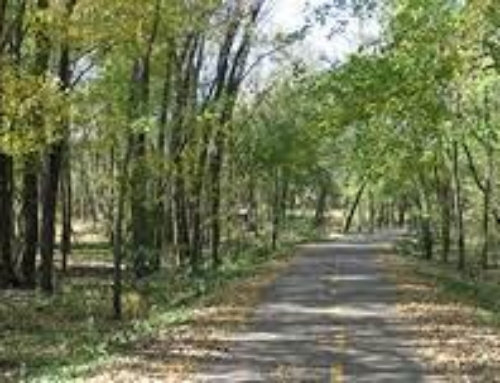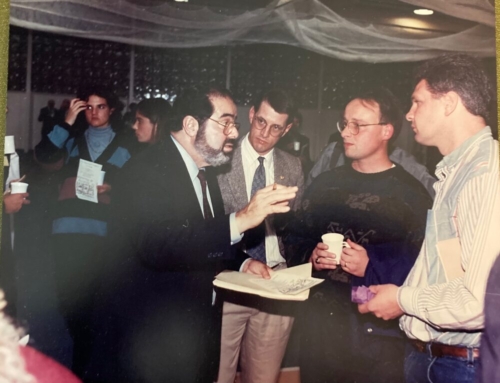I was looking forward to volunteering at Trinity Bible Church’s non-profit…
 First I had to focus on doing my job as an associate pastor and establish small groups and build a men’s ministry.
First I had to focus on doing my job as an associate pastor and establish small groups and build a men’s ministry.
Developing these relational ministries required good people skills and a strong understanding of the culture. Moving from Wisconsin to Louisiana meant I had a lot to learn.
Simple phrases could become a hidden relational barrier. I had to learn to say “y’all” instead of my typical “you guys.” For this Yankee, that was a process. My first attempts were a very northern two-syllable “you all.” I was gently informed that the correct pronunciation had only one syllable; “y’all.” It took me a while to catch on, “bless my heart.”
I had to learn about Cajun cuisine. I proposed a small group picnic with sauerkraut and bratwurst. It became a crawfish boil. Turns out that brats are not even the preferred sausage in Lafayette. Andouille and Boudin are. Who knew? In Lafayette, I ate gumbo, corn macque choux, shrimp po’boys, and muffulettas for the first time.
I had Cajun words and phrases to learn, like “laissez les bon temps roulér;” “Fais-do-do;” and “Lagniappe.” I discovered that “eaux” was pronounced as a long “o” sound, as in sneaux or geaux.
After three years of cultural assimilation and pastoring, I was finally ready to explore ministry to under-resourced children. I had heard that Trinity’s non-profit, The Bridge, was having difficulty finding high-school tutors who were proficient in math and science. Those were my two favorite subjects in high school, so I volunteered.
When I arrived at The Bridge, I discovered that I would be working with three kindergarteners, a first grader and a second grader — not exactly what I had in mind.
I was shown my tutoring room. It turns out that my room was not a room at all. It was a hallway. In fact, it was the hallway to the only bathroom in the building. The Bridge was over capacity at the time, which was a symptom of the program’s success. That didn’t dawn on me at the time.
What did dawn on me was that our room had no tables or chairs. We sat Indian style on a carpet that had formerly been some shade of red. All of this was an omen of things to come.
Immediately, two of my students began pulling books off the bookshelves. Did I mention that the hallway also served as the library? As I began to pick up the books and put them back on the shelf, another child toppled over the box-fan. We were off to an inauspicious start.
As I was getting my students settled down, a student from another room walked down the hallway to use the bathroom. Moments later, I heard pounding on the door and someone pleading to be let out. I looked up to see one of my students grinning from ear-to-ear with his foot placed firmly at the base of the bathroom door. I shook my head in disbelief.
It didn’t get better.
In the following weeks, we would start our time together by playing outside. Playtime went well. We would have some fun throwing a football around or playing tag. The moment we entered the building, however, chaos ensued. To be fair, some teaching and learning went on, but most of my efforts were focused on crowd control.
One child in particular was an especially “active,” kindergartener named Mian. He would not sit still and he had absolutely no interest in learning. He may have only been five, but he figured out all my buttons and pushed them with alacrity. After six weeks, I was totally exhausted and ready to quit. I planned to call the executive director to tell her that I would not be coming back.
I was disappointed and angry. Ministering to under-resourced children had been in my heart since my high school days. I had visions of victoriously helping under-resourced high school students master Shakespeare, biology and algebra. Maybe even teach them chess. Instead, I had been vanquished by a group of kindergartners.
On my way to my church office, I told God that I was angry. As I was inside my car at a stop light, I yelled at God at the top of my lungs while pounding my steering wheel. I must have been quite a spectacle to drivers nearby.
“God, I wanted to help, but YOU give me these naughty kids!”, I shouted. “God, I can do math! The Bridge doesn’t have a high school tutor that can help with algebra. I can do algebra! I can’t do kindergarten. God, what are You doing to me?!”
“These naughty kindergartners can’t even read!” I continued. “What am I supposed to do with them? God, I have talents and abilities that could help the high-school students that aren’t being used. The Bridge has me, a pastor, sitting on an old carpet. I am making sacrifices to help and no one cares.”
Love Works. Love Changed Both Of Us.
When I saw the effect a little patience, kindness, and attention had on a kindergartner, I asked Kris to volunteer alongside me the following year. The year after that, three of our children joined us.
Kris and I found ourselves falling in love with these children and their families. The more I thought about it, the more I realized that many people would stand in line to be an associate pastor, but very few people were willing to work with these children. Our volunteer work became a calling.
In 2010, Trinity began a three-year capital campaign to build a bigger sanctuary. I committed to helping Trinity with its capital campaign. At the same time, I felt a strong pull toward urban ministry. I told Kris, we would work with Trinity until the campaign was over, then we would start some type of urban work. I called this our “three-year plan.”
That May, I had a conversation with our senior pastor. I told him that I loved Trinity and was committed to the capital campaign, but during that time I would be exploring ministry opportunities on the Northside of Lafayette. I didn’t know if that meant starting a non-profit or a church. Kris and I felt the Lord was leading us to do some form of ministry to Lafayette’s poor.
A few weeks prior, on April 20, 2010, was the Deepwater Horizon disaster, the largest oil spill in history. An estimated 210 million gallons of oil were discharged into the Gulf of Mexico. On April 30th, President Barack Obama ordered the federal government to hold new Gulf drilling permits until all the current rigs could be inspected. This moratorium suspended existing work on 33 oil rigs.
The Oil & Gas industry represents 30% of Lafayette’s economy. By late spring, businesses were starting to feel the pinch. In hindsight, having that conversation with the senior pastor in May might not have been such a great idea.
On Friday, July 9th, three of our children headed out to Global Expeditions on missions trips. Kris and Marz went camping in Hot Springs, Arkansas. Then they would travel to Bettendorf, Iowa for her brother’s wedding reception on Saturday, July 17th. Only my oldest son, Jonathan, and I remained at home.
On Tuesday evening, I received a call from the senior pastor. He wanted to visit with me on Wednesday at the church office. He failed to mention the meeting agenda. Although this was a bit peculiar, I didn’t think much of it. The church was growing. The ministries I was involved with were thriving.
When I entered the pastor’s office, I was surprised there was an elder waiting there with him. Suddenly, I had an uneasy feeling. Then, on Wednesday, July 14th, the pastor told me that the church finances had fallen significantly since the oil spill. Trinity was down to one month’s cash reserve in the bank. Those on the pastoral staff were receiving a 25% salary reduction. I, however, was being laid off along with five support staff members. I would receive three months’ severance.
The pastor told me the last time the church finances had gotten this bad was back in the 1980s when the price of oil cratered. He advised me that now would be a good time to sell my house and move back up north before housing prices in Lafayette collapsed.
He anticipated the economy would only get worse. Laying me off would allow my family to move back up north to friends and family and a better economic environment. He would announce my layoff at Sunday’s service.
I asked him to keep everything secret until my family got home. My family was literally all over the world. I especially didn’t want Kris to hear before Sunday and ruin her trip with Marz. He encouraged me to tell Kris before Sunday because she would likely get a call from a concerned parishioner before service. I told him, “You know everyone who knows. Please tell them not to talk to Kris until after the church announcement. These are spiritual leaders. They should know how to keep a secret.” He told me he would try, but he couldn’t guarantee it.
I knew that one of Kris’ goals for her trip was to pray for direction about our future. I knew she would be praying and journaling about our next steps. I wanted her to be able to hear from God. Between Hot Springs and Bettendorf, she was going to travel to Springfield, Missouri, to visit my childhood pastor to get spiritual advice from him. I had a sense that God would speak to her.
On the other hand, I also went home and panicked. I made a list of all the house repairs that needed to be done to be able to list our house for sale. Listening to Trinity’s senior pastor’s advice, I made lists of my ministry contacts and gatekeepers who could help me find my next pastor position up North.
That night I had a dream. A squad of soldiers was reconnoitering in a wood at dusk. Suddenly shots rang out. One of the soldiers began to run wildly through the trees. In my dream, God asked, “John, what is going to happen to that soldier?” Having seen all the old war movies, I knew that soldier’s fate. “He’s going to get shot,” I replied. Then God said, “That soldier is you. You are running around without a plan. You are going to get shot. Stop and listen. Don’t do anything now. I will show you what to do.” Although God didn’t explicitly tell me to stay in Lafayette, it seemed implied. So, I stopped, waited, and listened.
I didn’t have to wait long. At 2:25 PM the following day, July 15th, the Macondo Prospect oil well, the site responsible for my layoff, which had unabatedly been spilling oil into the Gulf for 87 days, was finally capped. I watched the underwater cameras in disbelief. I continued to watch, waiting for the cap to fail, but it didn’t.
The crisis was over.
If God were trying to tell me that everything would be fine in Lafayette, capping the oil well the day after I was laid off was the way to do it. There would be no economic apocalypse in Lafayette.
I called Kris at 7 am on Sunday morning. Happy to hear my voice, she didn’t ask me why I was calling so early.
I asked her how her trip had gone. She told me that she and Marz had a wonderful time camping in Hot Springs. The next day they had so much fun on the rides at Silver Dollar City. She enjoyed her brother’s wedding reception and the opportunity that she had to visit with her family, including many cousins that she hadn’t seen in years. For nearly an hour she told me all about her week.
Then her tone turned serious. She told me that she felt like God had been speaking to her on this trip. She told me that my pastor gave her a lot of good spiritual advice. Then she said, “I believe that God was showing me that this ‘three-year plan’ of yours is your plan; not God’s plan. John, you need to hold on to your timeline much more loosely.”
Providing me with an unexpected segue, I replied, “God happened to show me the same thing this week.” Then I proceeded to tell her that I had been laid off. I told her about my dream. I told her I had a sense of God’s reassuring presence and that I believed God still had a ministry for us in Lafayette.
The week following my layoff, many church people called to set up a time to visit with me. They wanted to encourage me and find out what our future plans were. I told them that we had nothing definite yet. We were waiting for God’s direction. Over the next few weeks, multiple people told me that they didn’t think our ministry in Lafayette was over. They saw our hearts for the poor. They said that if Kris and I were to start an urban ministry, they would financially support that mission.
If I had put our house up for sale, if I told them we were applying for church positions up North, they would have kept their thoughts to themselves. But because I stopped and listened, I heard people confirm our calling to the under-resourced families in Lafayette.
If it were not for the Deepwater Horizon catastrophe, it is unlikely we would have ever started New Hope. Our hearts were for urban ministry, but noble intentions often fall victim to comfort and security. Urban ministry is difficult. If there had been an easier way, I would have likely taken it. Sometimes God uses forcing moves to get us to where we need to be.
On July 14th, 2010, we went from dipping our toes in the water to diving head first into urban ministry.






